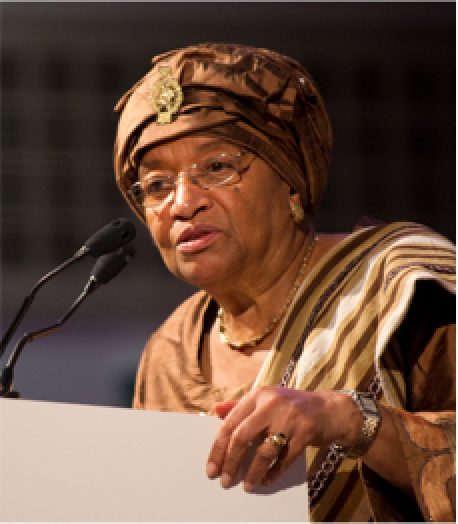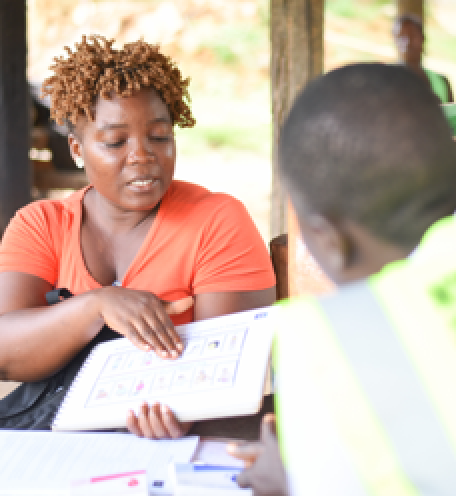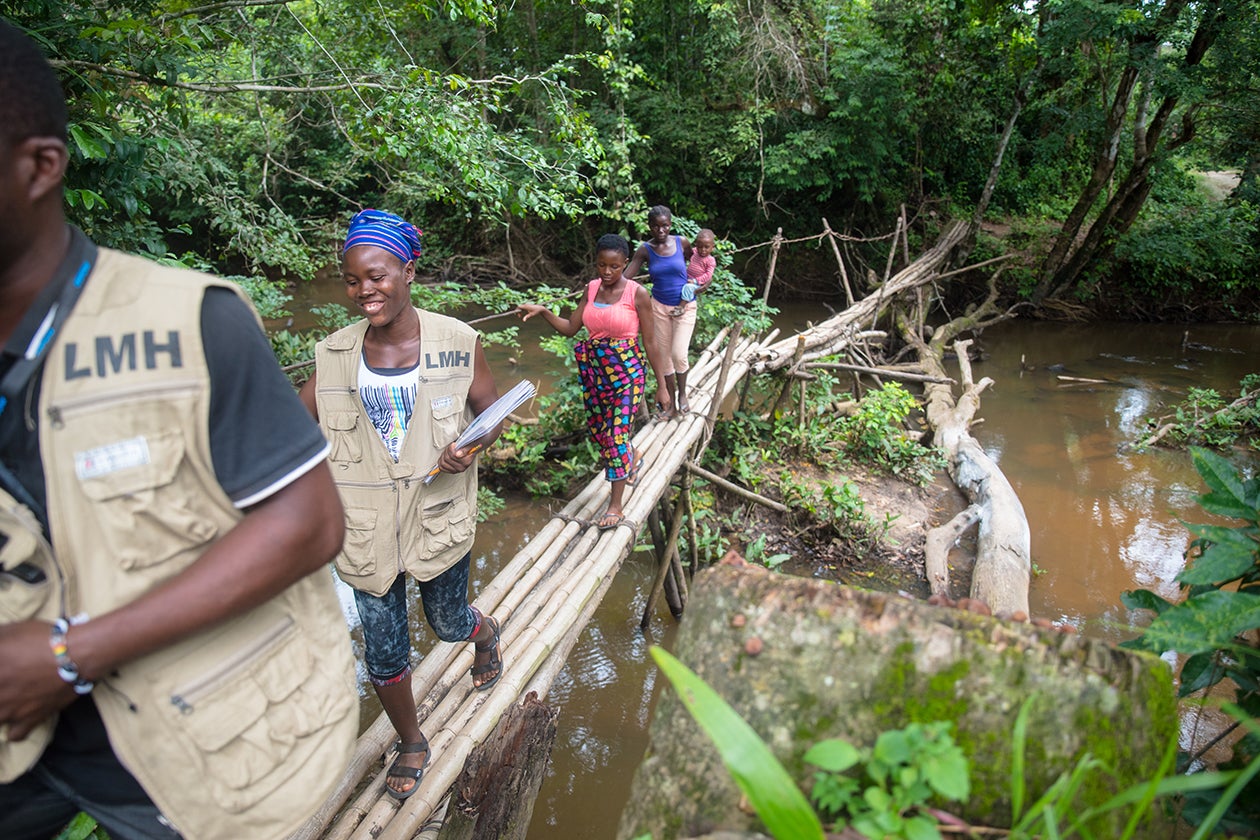Community Health Workers in Liberia
Crisis propels country to extend reach of health system and increase demand for care
CONTENTS
Quick Downloads

KEY INSIGHTS
The speed of the scale-up of Liberia’s premier community health worker program - the National Community Health Assistant Program - is remarkable, given the country’s extreme poverty and recent history of civil war and epidemic.
Liberia demonstrates that even extremely low-resourced countries with remote populations can implement CHW programming that can improve health broadly.
Donor management and strong government vision
Liberia provided a clear and persuasive policy vision and pushed donors to provide transparency on funding capabilities and contingencies.
Liberia took a proactive stance with donors. It did not merely accept donors’ plans but instead responded to funders’ offers with its own research and vision to maximize impact and fill critical gaps. As Liberia tracked and mapped each donor’s priorities, the country pushed less transparent donors to become more forthcoming about their own funding requirements. This approach proved remarkably successful. As of 2019, almost every major health sector development donor is funding some aspect of Liberia’s CHW program.

Invest in data systems
CHW program was built with robust support systems including monitoring and evaluation, training, and supervision for CHWs.

Data, measurement, and evaluation are central to the implementation of Liberia’s CHW program. The Ministry of Health collects data from a few key sources to identify and measure gaps, and monitor and improve implementation fidelity, program impact, and performance by CHWs individually, and by geographic setting. The data can be roughly divided into three streams. One stream consists of routine data that originates from CHWs in the field and is focused on service delivery and disease monitoring. The second stream of data is from community-level and facility-level surveys that assess systems performance issues like supervision, supply chain issues, CHW competency, and financial audits. The third stream of data is from evaluations and other one-off research like surveys of CHW and community perceptions, or impact evaluations.
Design with financial sustainability in mind
Tailor-made costing tools allowed planners to understand cost implications of CHW design elements.
During the early planning phase, long before program launch, Liberia developed detailed financial costing and sustainability modeling that helped the government track and study three key variables: potential costs, potential benefits, and potential funding for each program. With these tools, Liberia could understand - at an extremely granular level - the costs and benefits of various elements of the program, as well as who might be willing to pay for them, and for how long. In addition, the government could identify financial gaps, both geographically and programmatically, match them with potential funders, and advocate for line-item resources, prioritizing specific items and geographic settings for further investments.

Leverage windows of opportunity
The Ebola epidemic demonstrated the need for a resilient primary health care system and the value of CHWs. CHW program champions used this experience—and President Ellen Johnson Sirleaf’s desire for a legacy for her administration—to build momentum.

Liberia’s experience establishing the national CHW program in the wake of the Ebola crisis demonstrates the value of timing in politics. Supporters of CHW programming in Liberia recognized that the Ebola epidemic had left government officials and their partners eager for sweeping reforms. As the number of new Ebola cases per week continued to decline in late 2014, President Sirleaf framed the national CHW program as part of the country’s response and set an ambitious timeline to have the program functional within the next three years. A few months later, the Ministry of Health convened representatives from 14 ministry departments, 13 of the country’s 15 County Health Teams, and 30 partner organizations to agree on a vision and roadmap for strengthening community health.
Use an iterative approach
Liberia began experimenting with CHW programing in 2007 and has continually adapted and adjusted its programmatic model to reflects learnings. Regularly scheduled policy reviews of the program help identify gaps, challenges, and successes.
The country’s initial CHW program relied on volunteers in peri-urban areas. Evaluations of that program informed a 2012 CHW pilot program for rural areas with paid CHWs developed by the Ministry of Health and NGO partner Last Mile Health. Findings from the pilot showed significant improvements in access to health care for children and pregnant women. The pilot, which allowed the ministry to test and revise program elements, was eventually scaled nationally, with minimal changes, in 2016.


Community Health Workers in Liberia

Ask an Expert
Our team and partners are available to answer questions that clarify our research, insights, methodology, and conclusions.
